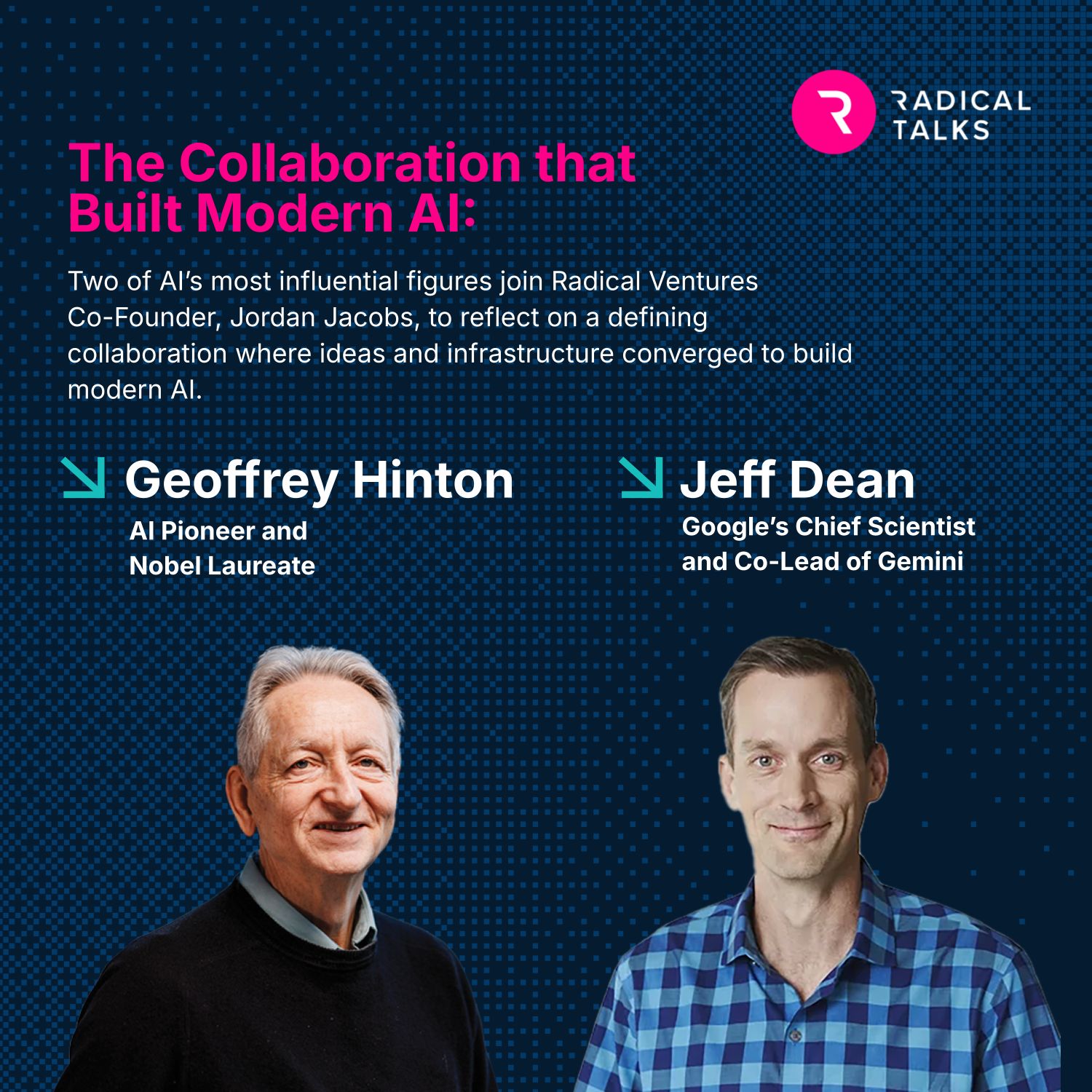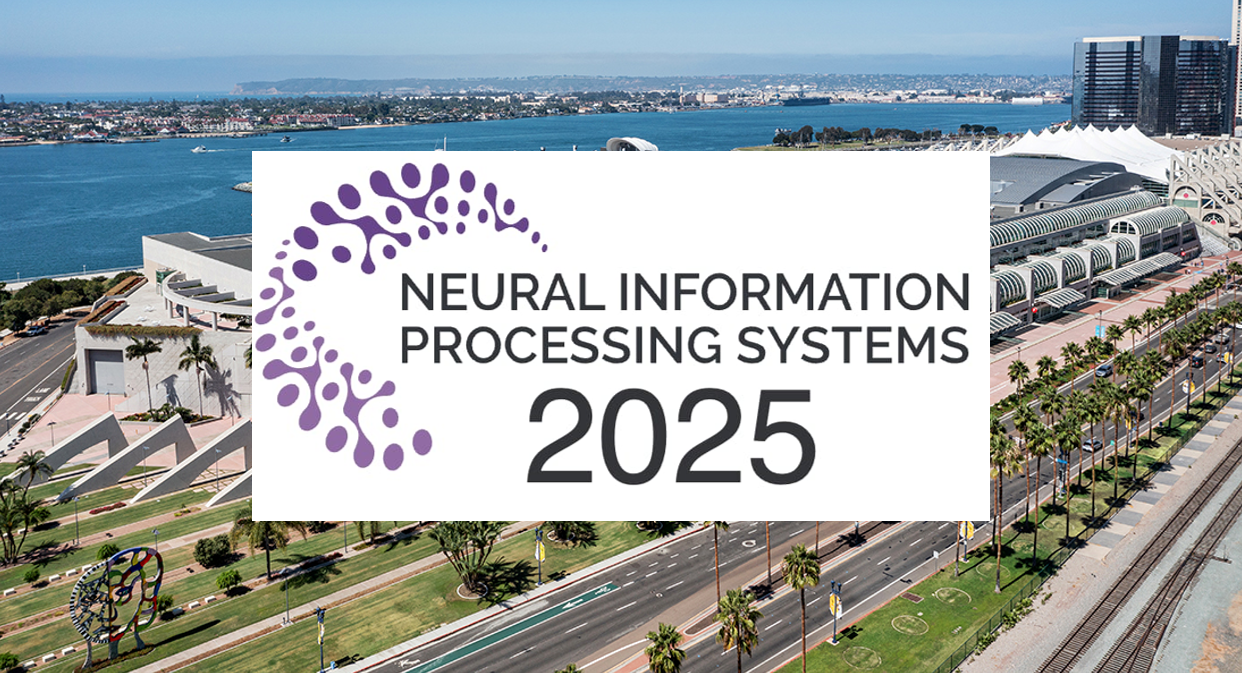In an annual end-of-year tradition, Radical Ventures Partner Rob Toews published 10 predictions for the world of AI in 2025 in his Forbes column. Rob’s predictions this year include web agents going mainstream, the first real AI safety incident occurring, and AI data centers in space.
Six out of Rob’s 10 AI predictions for 2024 ended up coming true, including Chief AI Officer positions being created at Fortune 500 companies, alternatives to the transformer architecture being meaningfully adopted, and tensions growing in the Microsoft-OpenAI relationship.
This week, we share brief excerpts from Rob’s 10 AI predictions for 2025:
- Meta will begin charging for use of its Llama models.
“To be clear: we are not predicting that Meta will make Llama entirely closed source, nor that anyone who uses the Llama models will have to pay for them.
Instead, we predict that Meta will make the terms of Llama’s open-source license more restrictive, such that companies who use Llama in commercial settings above a certain scale will need to start paying to access the models.”
- Scaling laws will be discovered and exploited in areas beyond text—in particular, in robotics and biology.
“Nearly all discussions about scaling laws—starting with the original 2020 paper and extending all the way through to today’s focus on test-time compute—center on language. But language is not the only data modality that matters.
Think of robotics, or biology, or world models, or web agents. For these data modalities, scaling laws have not been saturated; on the contrary, they are just getting started. Indeed, rigorous evidence of the existence of scaling laws in these areas has not even been published to date.
Don’t believe the chatter. Scaling laws are not going away. They will be as important as ever in 2025. But the center of activity for scaling laws will shift from LLM pretraining to new modalities.”
- Donald Trump and Elon Musk will have a messy falling-out. This will have meaningful consequences for the world of Al.
“As we saw time and time again during the first Trump administration, the median tenure of a Trump ally, even the seemingly staunchest, is remarkably short—from Jeff Sessions to Rex Tillerson to James Mattis to John Bolton to Steve Bannon. (And, of course, who can forget Anthony Scaramucci’s ten-day stint in the White House?) Very few of Trump’s deputies from his first administration remain loyal to him today.
Both Donald Trump and Elon Musk are complex, volatile, unpredictable personalities. They are not easy to work with. They burn people out. Their newfound friendship has proven mutually beneficial to this point, but it is still in its honeymoon phase. We predict that, before 2025 has come to an end, the relationship will have soured.
What will this mean for the world of AI?
It will be welcome news for OpenAI. It will be unfortunate news for Tesla shareholders. And it will be a disappointment for those concerned with AI safety, as it will all but ensure that the U.S. government will take a hands-off approach to AI regulation under Trump.”
- Web agents will go mainstream, becoming the next major killer application in consumer AI.
“Next year will be the year that web agents start working and go mainstream. Continued advances in language and vision foundation models, paired with recent breakthroughs on ‘System 2 thinking’ capabilities as a result of new reasoning models and inference-time compute, will mean that web agents are finally ready for primetime.
(In other words, Adept had the right idea; it was just too early. In startups, as in much in life, timing is everything.)
Web agents will find all sorts of valuable enterprise use cases, but we believe that the biggest near-term market opportunity for web agents will be with consumers. Despite all the recent AI fervor, relatively few AI-native applications beyond ChatGPT have yet broken through to become mainstream consumer successes. Web agents will change that, becoming the next true ‘killer app’ in consumer AI.”
- Multiple serious efforts to put AI data centers in space will take shape.
“Today’s energy system is simply not equipped to handle the tremendous surge in demand coming from artificial intelligence workloads. A historic collision between these two multi-trillion-dollar systems—our energy grid and our computing infrastructure—is looming.
Next year, an unconventional new idea to tackle this challenge will emerge and attract real resources: putting AI data centers in space.
The biggest bottleneck to building more data centers quickly on earth is accessing the requisite power. A computing cluster in orbit can enjoy free, limitless, zero-carbon power around the clock: the sun is always shining in Space.
Another meaningful advantage to putting compute in space: it solves the cooling problem. One of the biggest engineering obstacles to building more powerful AI data centers is that running many GPUs at the same time in a confined space gets very hot, and these high temperatures can damage or destroy computing equipment. Data center developers are resorting to expensive, unproven methods like liquid immersion cooling to try to solve this problem. But space is extremely cold; any heat generated from computing activity would immediately and harmlessly dissipate.”
- An AI system will pass the “Turing test for speech.”
“The ‘Turing test for speech’ remains out of reach for today’s AI systems. Solving it will require meaningful additional technology advances.
Latency (the lag between when a human speaks and when the AI responds) must be reduced to near-zero in order to match the experience of speaking with another human. Voice AI systems must get better at gracefully handling ambiguous inputs or misunderstandings in real-time—for instance, when they get interrupted mid-sentence. They must be able to engage in long, multi-turn, open-ended conversations while holding in memory earlier parts of the discussion. And crucially, voice AI agents must learn to better understand non-verbal signal in speech—for instance, what it means if a human speaker sounds annoyed versus excited versus sarcastic—and to generate those non-verbal cues in their own speech.
Voice AI is at an exciting inflection point as we near the end of 2024, driven by fundamental breakthroughs like the emergence of speech-to-speech models. Few areas of AI are advancing more rapidly today, both technologically and commercially. Expect to see the state of the art in voice AI leap forward in 2025.”
- Major progress will be made on building AI systems that can themselves autonomously build better AI systems.
“We predict that next year, this vein of research will burst into the mainstream. Expect to see much more discussion, progress and startup activity in this field in 2025 as it becomes more widely appreciated that automating AI research is in fact becoming a real possibility.
“The most meaningful milestone, though, will be when a research paper written entirely by an AI agent is accepted into a top AI conference for the first time. (Because papers are blindly reviewed, conference reviewers won’t know that a paper was written by an AI until after it has been accepted.) Don’t be surprised to see research work produced by AI get accepted at NeurIPS, CVPR or ICML next year. It will be a fascinating, controversial and historic moment for the field of AI.”
- OpenAI, Anthropic and other frontier labs will begin “moving up the stack,” increasingly shifting their strategic focus to building applications.
“AI leaders like OpenAI and Anthropic cannot and will not stop investing in building cutting-edge models. But next year, in an effort to develop business lines that are higher-margin, more differentiated and stickier, expect to see the frontier labs make a big push to roll out more of their own applications and products.
One of the most fascinating parts of watching frontier labs move up the stack to the application layer is that this move will bring them into direct competition with many of their most important customers: in search, Perplexity; in coding, Cursor; in customer service, Sierra; in legal AI, Harvey; in sales, Clay; and on and on.”
- As Klarna prepares for a 2025 IPO, the company’s claims about its use of AI will come under scrutiny and prove to be wildly overstated.
“Without doubt, every organization in the world, including Klarna, will enjoy vast productivity gains from AI in the years ahead. But many thorny technology, product and organizational challenges remain to be solved before AI agents can completely replace humans in the workforce.
Overblown claims like Klarna’s do a disservice to the field of AI and to the hard-fought progress that AI technologists and entrepreneurs are making toward developing agentic AI.”
- The first real AI safety incident will occur.
“What should we expect this first real AI safety event to look like?
To be clear, it will not entail Terminator-style killer robots. It most likely will not involve harm of any kind to any humans.
Perhaps an AI model might attempt to covertly create copies of itself on another server in order to preserve itself (known as self-exfiltration). Perhaps an AI model might conclude that, in order to best advance whatever goals it has been given, it needs to conceal the true extent of its capabilities from humans, purposely sandbagging performance evaluations in order to evade stricter scrutiny.
We expect that this first AI safety incident will be detected and neutralized before any real harm is done. But it will be an eye-opening moment for the AI community and for society at large.
It will make one thing clear: well before humanity faces an existential threat from all-powerful AI, we will need to come to terms with the more mundane reality that we now share our world with another form of intelligence that may at times be willful, unpredictable and deceptive—just like us.”
Read Rob’s 2025 predictions in full. Rob writes a regular column for Forbes about the big picture of artificial intelligence.
AI News This Week
-
Machine translation is almost a solved problem (The Economist)
AI translation systems now match professional translators in most scenarios, with the time required for human review of AI-generated transcripts dropping from three to two seconds per word since 2017. Google Translate’s research scientist Isaac Caswell notes that while sentence-level translation is “pretty close to solved” for major languages, achieving human-level translation requires a deeper understanding of cultural nuances, long-term context, and subtle linguistic cues.
-
The AI agents are coming (The Financial Times)
AI agents are set to transform how we interact with technology by creating an intelligent layer between users and applications. These agents can automate complex tasks across multiple applications, streamlining online activities such as vacation planning including flights, hotel recommendations, and restaurant bookings. Radical Partner Rob Toews concurs, noting in his recent Forbes article that the most promising opportunities lie in targeted applications with structured workflows. Unlike traditional software products, AI agents can command pricing more aligned with employee salaries, unlocking massive new markets.
-
How does A.I. think? Here’s one theory. (The New York Times)
Researchers suggest that AI systems may use abductive reasoning to infer the most likely explanation from a set of observations. This approach, similar to how humans solve complex problems with limited data, explains AI’s creativity. Research from Carnegie Mellon and MIT reveals that AI systems struggle to explain their thought processes, highlighting the need for ongoing research into understanding AI decision-making.
-
Is AI any good at choosing gifts? (BBC)
According to Accenture research, AI is reshaping holiday shopping behaviour, with 95% of consumers believing AI could improve their gift selections. Early adopters report success when providing detailed, specific prompts about recipients’ interests and hobbies. Radical portfolio company Firsthand is leveraging this trend, developing AI brand agents that engage consumers directly, answer questions, and surface relevant product information in real time. KPMG’s Linda Ellett notes this shift could fundamentally change how consumers discover products online, potentially disrupting traditional retail search and advertising models.
-
Research: AI breakthrough transforms bird migration research (MIT Technology Review)
‘Tis the season for The Christmas Bird Count, a long-standing bird census first conducted by birdwatchers and citizen scientists on Christmas Day in 1900. The census helps to assess the health and status of bird populations across the Western Hemisphere. Today, machine learning is revolutionizing how scientists track bird migration through tools like BirdVoxDetect. Developed through a collaboration between NYU, Cornell Lab of Ornithology, and École Centrale de Nantes, the system is at the forefront of identifying birds from brief, 50-millisecond nocturnal flight calls. This technology enables researchers to monitor migration patterns in real time, further helping to understand and protect birds from threats all year round.
Radical Reads is edited by Ebin Tomy (Analyst, Radical Ventures)





